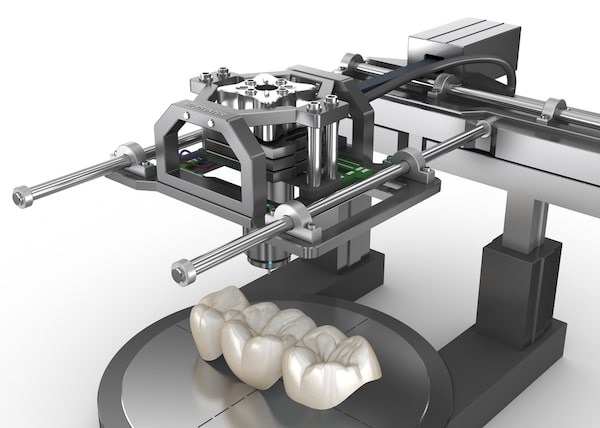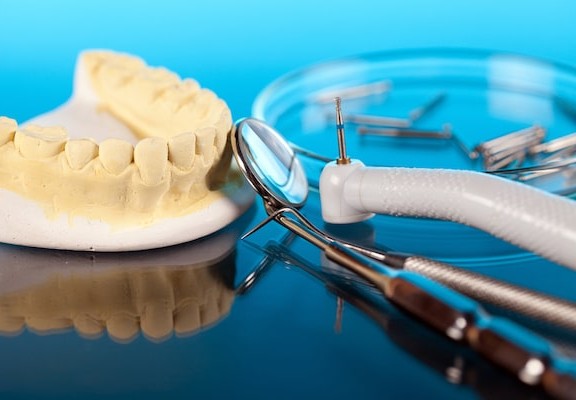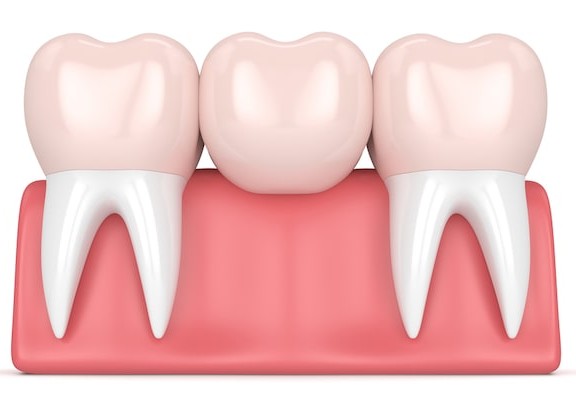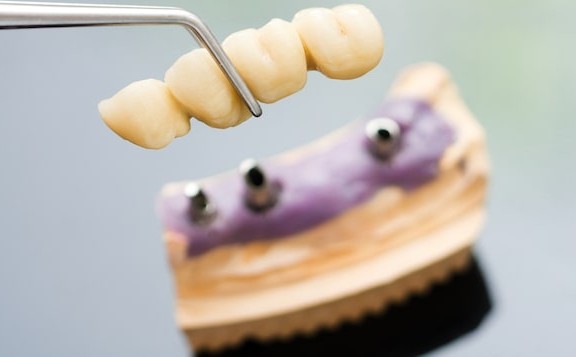The use of artificial intelligence (AI) is becoming more widespread in multiple industries across the globe, and this includes the health and wellness space. AI is now being used for tasks from medical documentation to detecting diseases. In addition, AI might soon make it easier for dentists to provide patients with the natural smile they desire along with an increased functionality to the mouth.
AI in Dentistry – How it Can Help with Dental Crowns
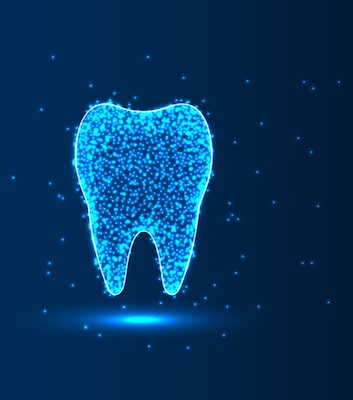 It was recently reported that researchers from the University of Hong Kong have developed an AI algorithm that makes use of 3D machine learning to design dental crowns that are personalized for patients. In addition, it was reported that dental crowns are also being created with a higher amount of accuracy than more traditional dental crown creation methods.
It was recently reported that researchers from the University of Hong Kong have developed an AI algorithm that makes use of 3D machine learning to design dental crowns that are personalized for patients. In addition, it was reported that dental crowns are also being created with a higher amount of accuracy than more traditional dental crown creation methods.
According to the researchers, AI is able to analyze data from the teeth that will be adjacent to the crown in the mouth. In turn, this data allows for a more precise fit that is still natural in appearance. The research team published the results of their study on this topic in the journal, Dental Matters.
Dental Crowns – Why are They Needed?
In general, a dental crown is a “cap” that is shaped like a tooth. It is placed over an existing tooth or implant in the mouth in order to provide the look of a natural tooth. A dental crown can be used to improve both the functionality and appearance of a tooth that is weakened, damaged, discolored, or misshapen. It can also be placed in the mouth to replace a tooth that is missing when it is paired with an artificial dental implant.
Dental Crowns – How are They Currently Created?
At the moment, the majority of dental crowns are created using software that is either computer-aided design (CAD) software or computer-aided manufacturing (CAM) software. The software makes use of a “tooth library” that contains templates of crowns. However, the dental crown will still need to be manually adjusted in the mouth so they can properly address the individual needs of the patient. Even though these two software choices can provide patients with dental crowns that make improvements to the targeted area of the mouth, there is still a possibility of the dental crowns being too thin or too large in appearance.
AI in Dentistry – Research Results Revealed
In the study conducted by the Hong Kong team, the researchers used 3D machine learning technology that was able to teach the AI algorithm over six hundred cases of dental results that were healthy and natural. In a press release, Dr. Hao Ding, a co-investigator on the project, said, “During the training process, natural teeth’s morphological features were learned by the algorithm, so that it can design dental crowns comparable to a natural tooth – both morphologically and functionality.”
As part of the study, the research team compared the crowns that were designed by Ai with crowns that were designed and created using CAD/CAM methods. It was discovered that the AI versions of dental crowns were better in both their functionality and aesthetic appearance.
In the same press release, Dr. James Tsoi, the principal investigator of the study, remarked, “This demonstrates that 3D-DCGAN (3D-Deep Convolutional Generative Adversarial Network) could be utilized to design personalized dental crowns with high accuracy that can not only mimic both the morphology and biomechanics of natural teeth, but also operate without any additional human fine-tuning, thus saving additional costs in the production process. Many AI approaches design a ‘lookalike’ product, but I believe this is the first project that functionalizes data-driven AI into [a] real dental application.
It has been reported that clinical trials have already started regarding the use of generative AI to create dental crowns. The research team in Hong Kong hopes to leverage the technology for the creation of both dental bridges and dentures in the future.
AI in Dentistry – Benefits of Creating Dental Crowns Discussed
There has been some discussion that the use of generative AI to create dental crowns that are close to perfect can save time and money when comes to the dental process. It has been said that generative AI can more accurately and effectively create personalized dental crowns by using previous data. Generative AI can also mold the dental crowns with enough accuracy and precision that they will have a lifespan almost as long as natural teeth.
In addition, generative dentistry in AI might give patients the ability to better maintain their oral health by taking photos of their teeth. These photo images can be uploaded by dentists so they can diagnose any issues with the teeth.
Even though the possibilities associated with AI in dentistry are exciting, there is still a need to perform clinical trials. In other words, it will likely be a long time before this technology is available in the United States.
As more research is conducted, our news team will provide updates on this story.



